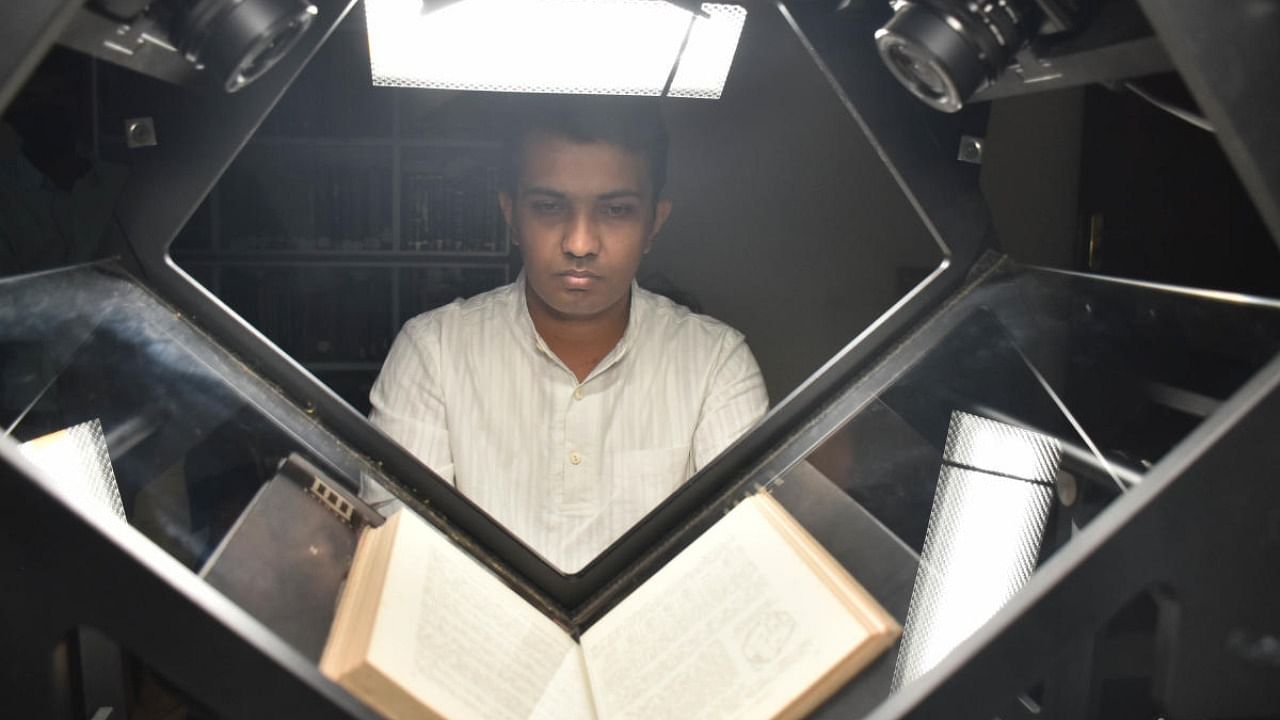
The National Law School of India University (NLSIU) is set to digitise its entire holdings in a benchmark move that could not only help students but also curb piracy, and in the process, set a precedent for other institutions struggling to take their libraries online.
Possessing nearly 40,000 books and another 30,000 journals and reports, the NLSIU’s library is one of the largest in India, comparable to the libraries of the Supreme Court and the Indian Law Institute. Within these numbers are an indeterminate number of out-of-print documents and books which have historical value.
Professor Sudhir Krishnaswamy, Vice Chancellor of NLSIU, said that previously the university had digitised a limited number of books for annual course reading lists as required by the syllabus.
“But students had complained that this was unsatisfactory due to problems with text recognition and other issues. So, we decided that we must do something strategically,” Krishnaswamy said.
The result was an MoU with Public.Resource.org which was started by American open-source advocate and technologist Carl Malamud whose 'Servants of Knowledge' initiative in India has already seen the digitisation of over 18,000 out-of-copyright books.
But the digitisation of in-copyright material on a scale such as that of NLSIU has not been tried before in India, explained Lawrence Liang, professor at Ambedkar University Delhi, an NLSIU alumni and fellow with Public.Resource.org who is involved in the digitisation project as an advisor.
“Very few institutions in India have robust libraries, but there are repositories in places with a large number of books and documents. The question then becomes: how do you maximise the availability of materials? Our conversation with NLSIU began with that point,” Liang said.
However, digitisation or scholastic copying efforts worldwide have been affected by threats of legal action by publishers — a problem typified by the 2013 incident in which Oxford University Press sued Delhi University and a photocopying shop for copyright infringement.
Liang, who was involved in that case, specified that the court ultimately ruled in favour of the students because under Section 52 of the Indian Copyright Act (1957), fair use exceptions are granted for education or scholastic purposes.
There are three objectives of the NLSIU digitisation programme. Firstly, all out-of-copyright books and documents will be scanned and uploaded to the Internet Archive where they will be accessible by the public.
Professor Krishnaswamy said in-copyright material will be restricted to students, with an extension to visually challenged students across India who can avail a “library” scholarship. “We expect this to be of benefit to such students who may not have adequate library facilities at their disposal,” the VC said.
The long-term objective for libraries in India should be to create a controlled digital lending system adapted from the Internet Archive, according to Liang. He added that it is “hoped that a precedent may be set for a consortium of libraries to similarly digitise their works, which will give students the ability to access them".
Omshivaprakash H L, who will be running the digitisation operation at the law school, said that eight top-of-the-line scanning machines will be operational at the library from May.
“We are hoping to scan 60 to 80 books per day or 40-50,000 pages per day which is a huge amount,” he said. “We estimate that it will take at least 600 days to complete digitisation.”
Check out the latest videos from DH: